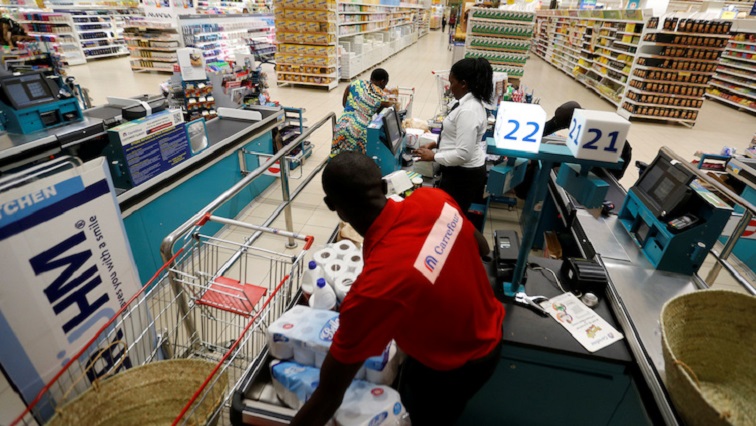While Kenya’s economy grew by 7.5% last year, the majority of Kenyans say that growth is yet to trickle down to them, with economists arguing that the Kenyan government will need to rethink its investment options if more of its citizens are to benefit.
The country is in the grips of a drought that has seen food prices soar to an all-time high, as the conflict in Ukraine pushed an increase in fuel prices by 4% leading to an increase in commodity prices for a country that is still a net importer of majority of its consumer goods.
Cooking gas has gone up by nearly 40% and fertilizer, which the country mainly imports from Russia has gone up and is difficult to find. Experts say it is likely to affect the agricultural sector.
When the SABC visited Nairobi’s retail market, known by traders as the Marikiti market, Margaret Oketch was busy packing sardines into tins of various sizes. For the 53-year-old mother of three, this was the beginning of yet another slow business day.
“Business is very slow, people are suffering, I was up at 4 am, I came here but still there’s no business,” she says, without stopping to look at us.
Oketch lamented the skyrocketing food prices – including the cost of her wares, sardines, known in the local dialect as Omena, which has left vendors like her with little or no profit margin at all.
“A year ago, a sack of Omena was 8 000 Shillings, now it is 14 000 – even if you sell at 300 shillings per tin you will still not make a profit. The fishermen say the cost of fuel is high, and they need fuel to ride their boats into the lake; transporting the omena to Nairobi is even higher,” she concludes, adding that this is what she has seen in the 15 years she has been selling fish in Marikiti market.
The huge economic growth witnessed last year is however likely to be short-lived according to Finance Cabinet Secretary Ukuru Yattani, who blames it on factors beyond the Kenyan government’s control. He cites the Ukraine-Russia conflict as likely to push up fuel and food costs.
Data from the statistics bureau indicates that last month inflation hit a seven-month high squeezing more Kenyans into poverty and hunger.
‘Life simply unbearable’
On the streets of Nairobi, Kenyans dismiss government growth figures. Margaret Gathoni, whom we found walking around the market with an empty basket seeking cheaper food options. She tells SABC News that life is simply unbearable.
“Everything has gone up, we are hungry, the cost of maize flour, sugar, cooking oil, everything has gone up, where do we turn to.”
As her customers’ purchasing power fell and her earnings were squeezed, 36-year-old Gertrude Amise – a mother of five – turned to a different line. From a vegetable vendor, she now pulls a handcart, more work, less money but she is assured of taking home something to put on the table.
“In one trip I can make at least 300 shillings. From that money, I will deduct my bus fare, and spare just enough to buy a packet of flour, vegetables and kerosene. And I am a single mother,” she says as she loads a crate of tomatoes on the handcart.
Taxation policies
From COVIDd-19, the Ukraine Russia conflict, huge debts and a prolonged drought, Kenya’s crisis has been brewing for some time now.
Economists, however, say the solutions lie with the government. An economist based in Nairobi, Ken Gichinga says the first point will be a review of the country’s taxation policies.
“I think we have a very big importation culture and when you have a lot of importation, it means you are always subject to global events, I think we need to start on domestic production because it tends to be more resilient. Number two, our taxation system is largely on consumption taxes, your VAT, your excise tax and that is really making it difficult, because when a soda company has additional taxes, it passes it on to the people,” he explains.
As the country heads to a General election in August this year, economists say, the country’s next leadership must shift focus to more investments in agriculture and manufacturing.
Mr. Gichinga says agriculture as an intensive labour sector would hire more people, dealing with the country’s high unemployment levels.
For now, Margaret and indeed many other traders here wait in hope that things will get better but will they?






